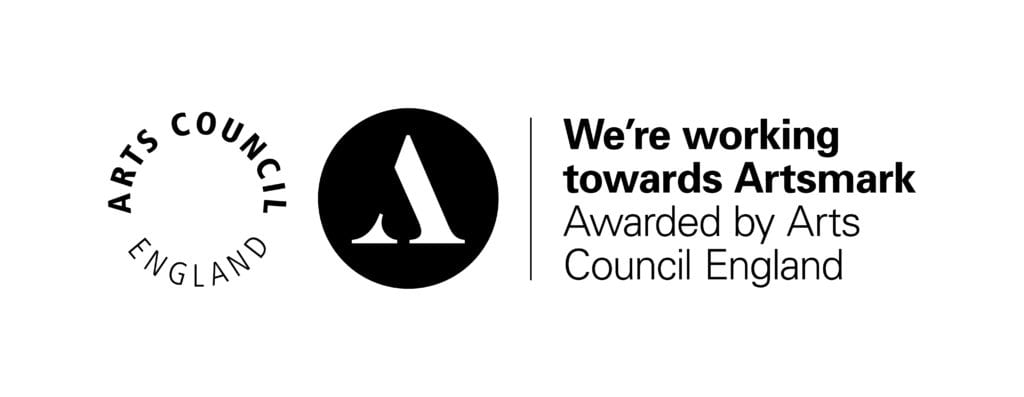At Grindon Infant School, we regard the safeguarding of children as our main priority. We believe that we all have the right to be happy, to be safe and to learn; we all have the responsibility to make this happen.
Parents should be aware that the school will take any reasonable action to ensure the safety of its pupils. In cases where the school has reason to be concerned that a pupil may be subject to ill-treatment, neglect or other forms of abuse, staff will follow Sunderland Local Safeguarding Board procedures and inform Children’s Services of their concern.
We will ensure that:
- the welfare of the child remains paramount;
- all children whatever their age, culture, disability, gender, language, racial origin, religious beliefs and/ or sexual identity have the right to be protected from harm;
- all suspicions and allegations of abuse will be taken seriously and responded to swiftly and appropriately;
- all staff and volunteers working at our school have a responsibility to report concerns to the designated leads for Safeguarding: Mrs Charlton and Mrs Dugdale.
Operation Encompass
Grindon Infant School is an Operation Encompass School
What is Operation Encompass?
- The purpose of Operation Encompass is to safeguard and support children and young people who have been involved in a domestic abuse incident. Following an incident at home, children will often arrive at school distressed, upset and unprepared for the day.
- Sunderland City Council, Northumbria Police and nominated key adults in school will be working together to make sure that staff are made aware of an incident early enough to support pupils in school. Our key adults are Mrs A Charlton and Mrs L Dugdale.
How does it work?
- Each morning a police officer will review all domestic abuse incidents that occur outside of school but which might have had an impact on a child attending school the following day. Where children are present, witnessed or involved in a domestic abuse incident and aged between 4 and 16 years old, the officer will send information to the Council’s Initial Contact and Referral Team who will then send this information in a secure format to the named key adult in the child’s school. The key adult will check their emails every day and staff in contact with those pupils will then be in an informed position to support them in a way that is right for the child.
- For more information about Operation Encompass, please contact school on telephone number 5536865 or visit the Operation Compass website.
Prevent Strategy
- HMI Government has published guidance for authorities, including schools, on their responsibilities under the Counter-Terrorism and Security Act, which came into effect on 1 July 2015. Under the act, schools and other authorities have a duty to ” have due regard for the need to prevent people from being drawn into terrorism.
What is the Prevent strategy?
- Prevent is a government strategy designed to stop people becoming terrorists or supporting terrorist or extremist causes.
- The Prevent strategy covers all types of terrorism and extremism, including the extreme right wing, violent Islamist groups and other causes.
- How does the Prevent strategy apply to schools?
From July 2015 all schools (as well as other organisations) have a duty to safeguard children from radicalisation and extremism.
This means we have a responsibility to protect children from extremist and violent views the same way we protect them from other dangers.
Importantly, we can provide a safe place for pupils to discuss these issues so they better understand how to protect themselves.
What does this mean in practice?
- Many of the things we already do in school to help children become positive, happy members of society also contribute to the Prevent strategy.
- These include:
- Exploring other cultures and religions and promoting diversity
- Challenging prejudices and racist comments
- Developing critical thinking skills and a strong, positive self-identity
- Promoting the spiritual, moral, social and cultural development of pupils, as well as British values such as democracy
- We will also protect children from the risk of radicalisation, for example by using filters on the internet to make sure they can’t access extremist and terrorist material, or by vetting visitors who come into school to work with pupils.
- Different schools will carry out the Prevent duty in different ways, depending on the age of the children and the needs of the community.
How does Prevent relate to British values?
- Schools have been required to promote British values since 2014, and this will continue to be part of our response to the Prevent strategy.
- British values include:
- Democracy
- The rule of law
- Individual liberty and mutual respect
- Tolerance of different faiths and beliefs
The Prevent Strategy
- The Prevent strategy is not just about discussing extremism itself, which may not be appropriate for younger children. It is also about teaching children values such as tolerance and mutual respect.
- The school will make sure any discussions are suitable for the age and maturity of the children involved.
- Is extremism really a risk in our area?
- Extremism can take many forms, including political, religious and misogynistic extremism. Some of these may be a bigger threat in our area than others.
- We will give children the skills to protect them from any extremist views they may encounter, now or later in their lives.
- KEY TERMS
- Extremism – vocal or active opposition to fundamental British values such as democracy, the rule of law and tolerance of different faiths and beliefs
- Ideology – a set of beliefs
- Terrorism – a violent action against people or property, designed to create fear and advance a political, religious or ideological cause
- Radicalisation – the process by which a person comes to support extremism and terrorism
- Where to go for more information
- Contact the school
- If you have any questions or concerns about the Prevent strategy and what it means for your child, please do not hesitate to contact the school.
Areas of Safeguarding
Our safeguarding policies cover all areas of school life and include:
- staff & visitors- ensuring they are vetted, informed & trained;
- children’s behaviour- promoting safer & happier behaviours & lifestyles;
- parents & carers- promoting links & supporting families;
- premises -keeping them safe, pleasant & fit for purpose;
- curriculum -providing positive, life affirming learning experiences;
- outside School- ensuring safer activities and environments outside school.
Members of Staff Responsible
We are all responsible for ensuring that each child remains safe, however the Designated Lead for Safeguarding is Mrs Charlton (Head Teacher) and Mrs Dugdale (Deputy Head Teacher) and Mrs Crowther (SENDCo) are the Deputy Safeguarding Leads.
Safer Recruitment
We follow strict procedures to ensure that everyone who works with our children is vetted, keeping our children as safe as possible. On-going checks and ‘whistle-blowing’ are in line with current policy.
Staff Training
All staff are:
- trained in child protection issues and they are aware of the procedures to follow;
- encouraged to be vigilant in order to maintain the safety of our children;
- given a copy of ‘The Staff Behaviour Policy’ and are directed to the document ‘KEEPING CHILDREN SAFE IN EDUCATION 2023’. This applies to volunteers too.
- Keeping_children_safe_in_education_2023
Child Protection Policy
All staff have an up-to-date understanding of safeguarding children issues and are able to implement the child protection policy and procedure appropriately. Policies are in line with current guidance and procedures.
Staff are able to respond appropriately to any:
- significant changes in children’s behaviour;
- deterioration in their general well-being;
- unexplained bruising, marks or signs of possible abuse;
- signs of neglect;
- comments children make which give cause for concern.
All staff are aware of the need to maintain privacy and confidentiality.
Information Sharing
We have an obligation to obtain necessary information from parents in advance of a child being admitted to school, including:
- emergency contact numbers;
- the child’s special dietary requirements, preferences or food allergies the child may have;
- the child’s special health requirements;
- information about who has legal contact with the child; and who has parental responsibility for the child.
PARENTS & CARERS MUST TELL US OF ANY CHANGES TO THESE DETAILS.
We take confidentiality very seriously. Any information which we hold is treated as confidential and shared on a ‘need-to-know’ basis.
Links with External Agencies
Because our first concern must be the well-being of your child, there may be occasions when we have to consult other agencies before we contact you. The procedures we have to follow have been laid down in accordance with Sunderland Children’s Safeguarding Board.
We are fortunate to be supported by a range of external agencies which can be called upon to support the work we do in school. These include School Nurse, Health Practitioners, Educational Psychology, Child & Adolescent Mental Health Services, Behaviour Support, Children’s Services and Specialists in supporting Special Educational Needs.
Review of Policy and Practice
In order to ensure that best practice is maintained, our policies are reviewed regularly to incorporate the latest statutory guidance.
If you would like more information on safeguarding, please contact the school for all our policies or view our policies section on our website.








